Day the Earth Stood Still, The (1951)
“I am fearful when I see people substituting fear for reason.”
|
Synopsis: |
|
Genres, Themes, Actors, and Directors:
Response to Peary’s Review: I’m ultimately a bigger fan of this cult flick than Peary: I like its intelligence, its deliberate pacing, and the crispness of Leo Tover’s atmospheric black-and-white cinematography (which is especially gorgeous in Blu-Ray). Unlike Anne Francis’s Altaira in Forbidden Planet (1956), Neal is a refreshingly savvy and nuanced female protagonist: and Rennie is perfectly cast as an ultra-rational yet compassionate alien attempting to understand humans’ “illogical” bent towards violence. The storyline may be a bit heavy in moralizing — with Rennie’s “Mr. Carpenter” clearly meant to symbolize a Jesus-like savior — but truthfully, we deserve it, given that our current world situation is nearly as dire now as during the Cold War. Thankfully, the film’s numerous “inconsistencies” — i.e., the fact that “Gort, a ten-foot metal Golem, scorches his way out of a solid block of plastic, marches across a major city, burns down the wall of a jail and carries kaput Klaatu back to the Mall – and nobody sees him!” — “only become obvious after repeated viewings”; see DVD Savant’s review for this example and others. Note: This film was remade in 2008 with Keanu Reeves but I haven’t seen that version and probably won’t. Redeeming Qualities and Moments:
Must See? Categories
(Listed in 1001 Movies You Must See Before You Die) Links: |
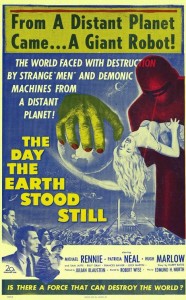
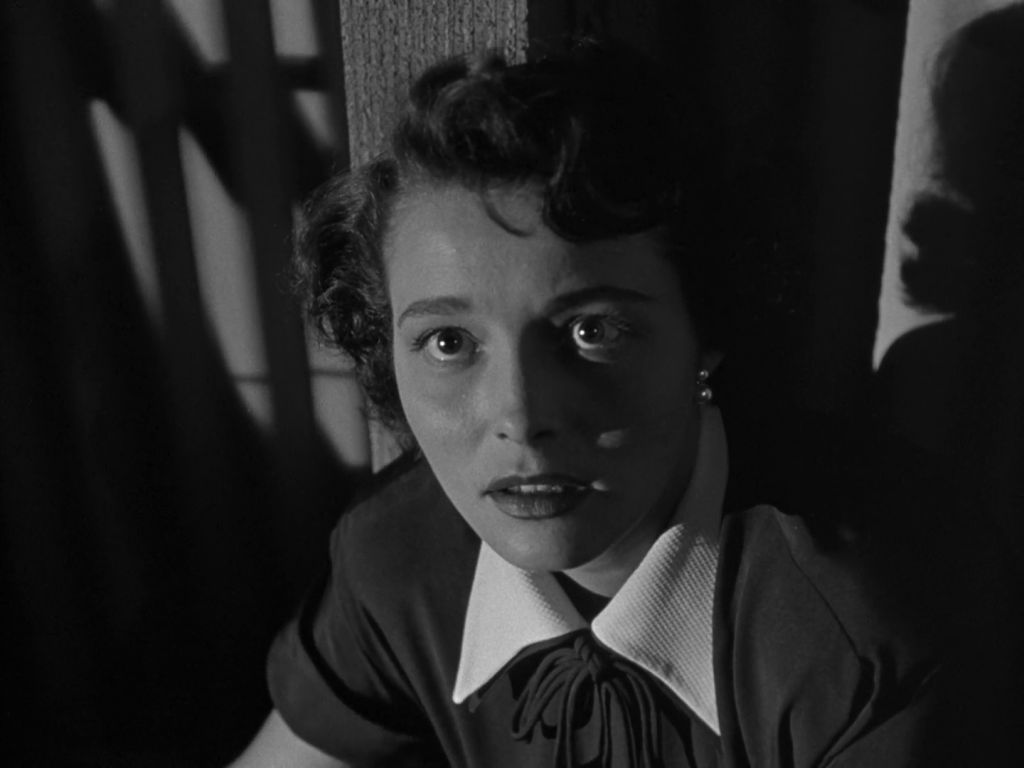
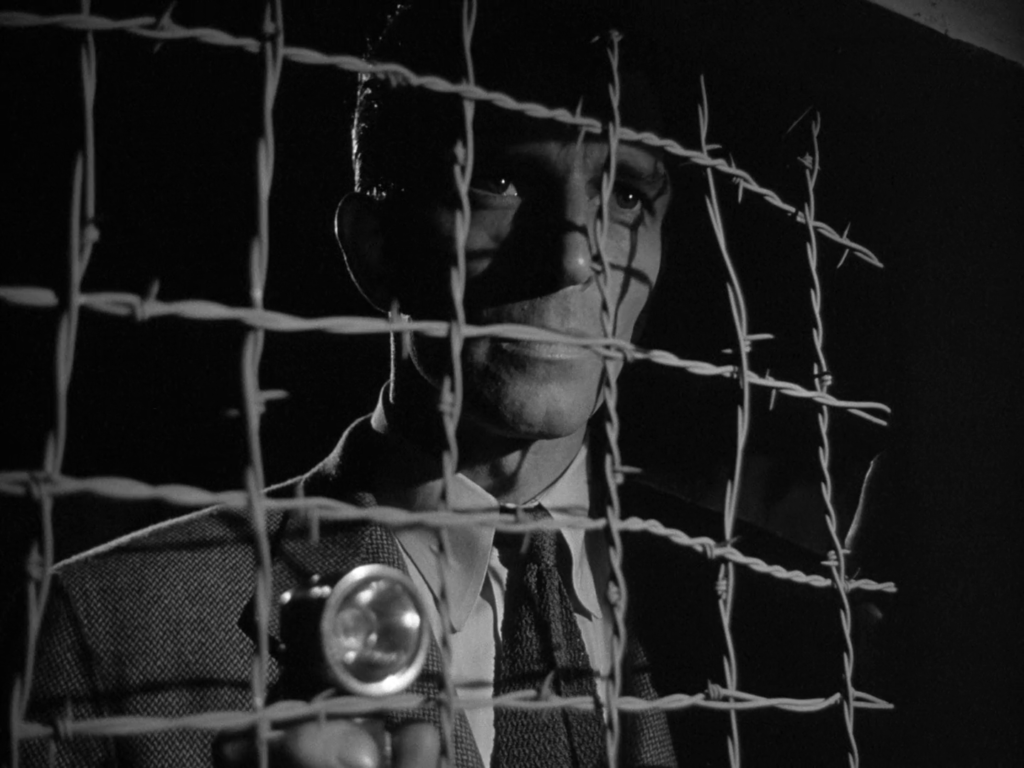
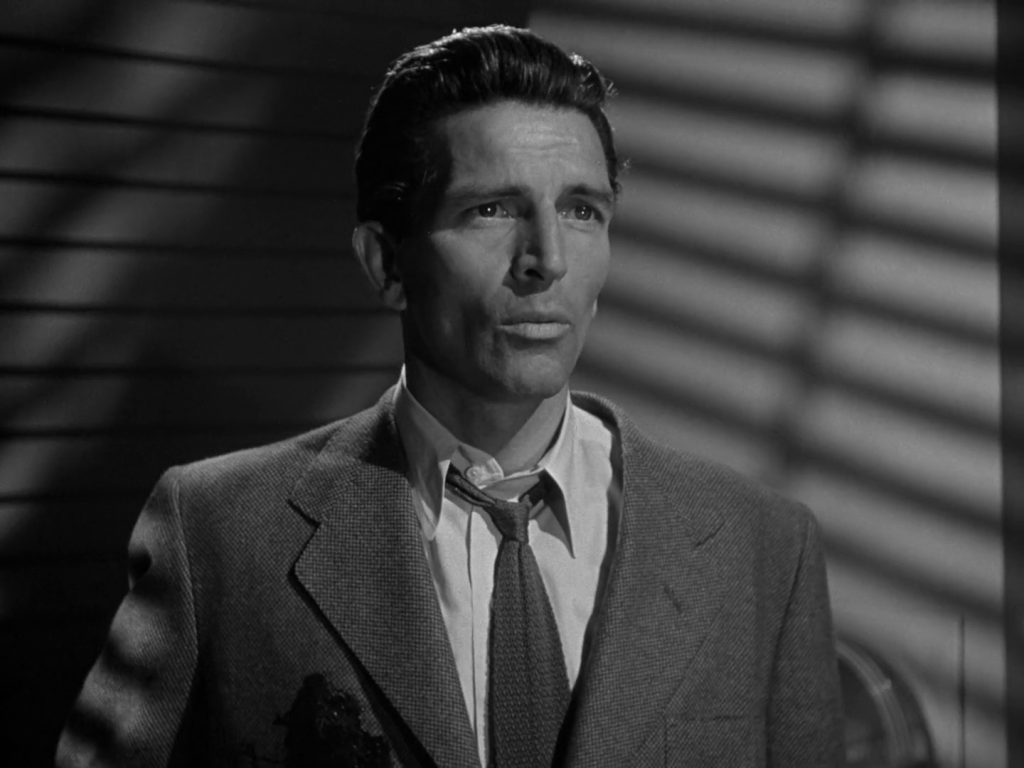
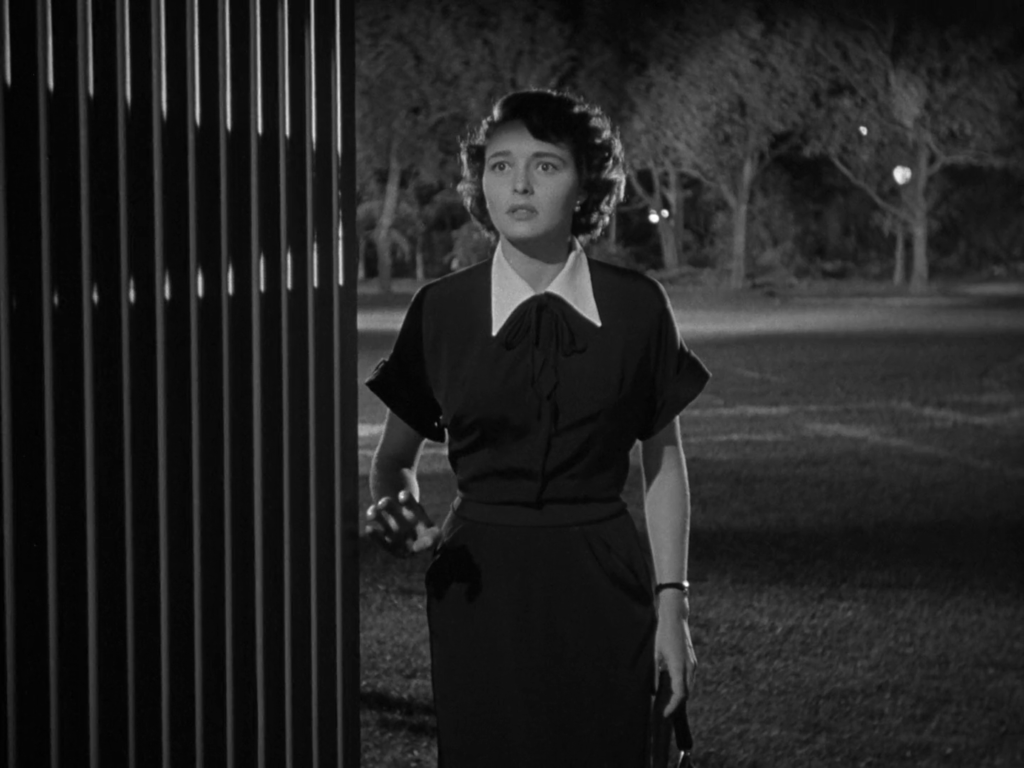
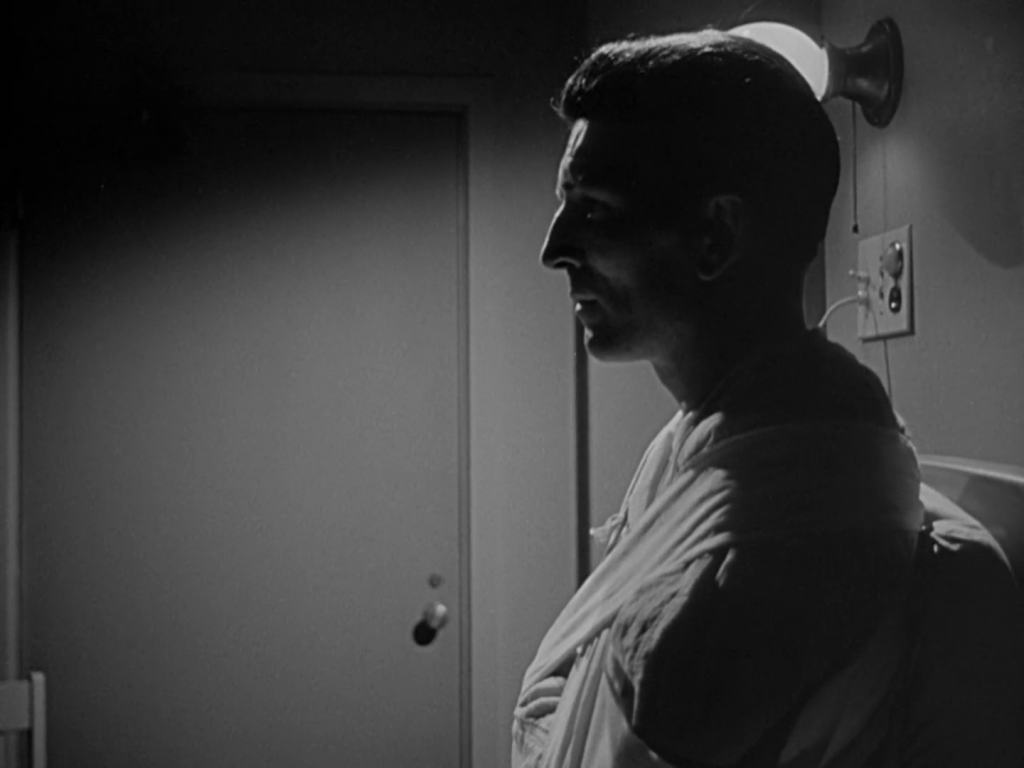
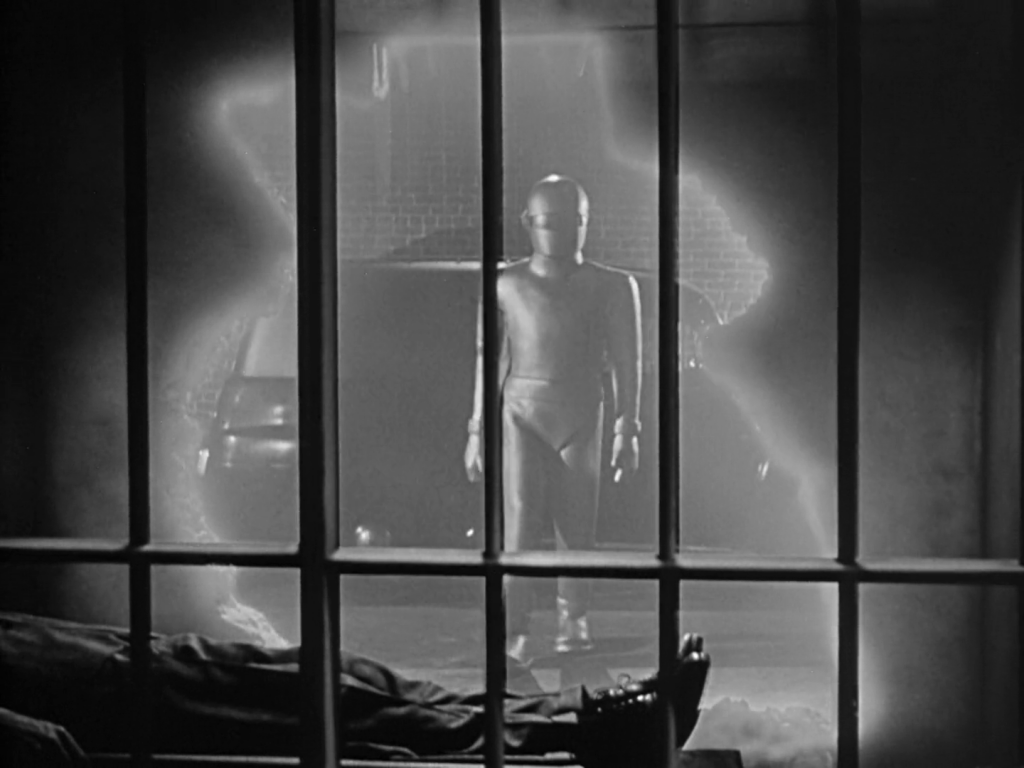
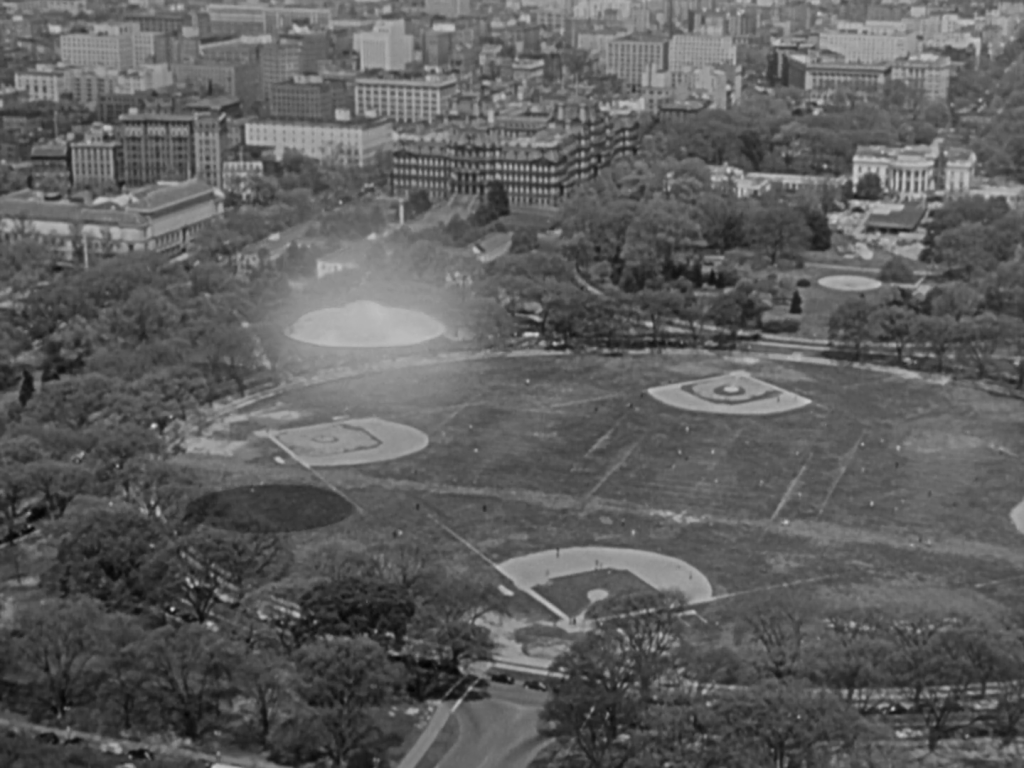
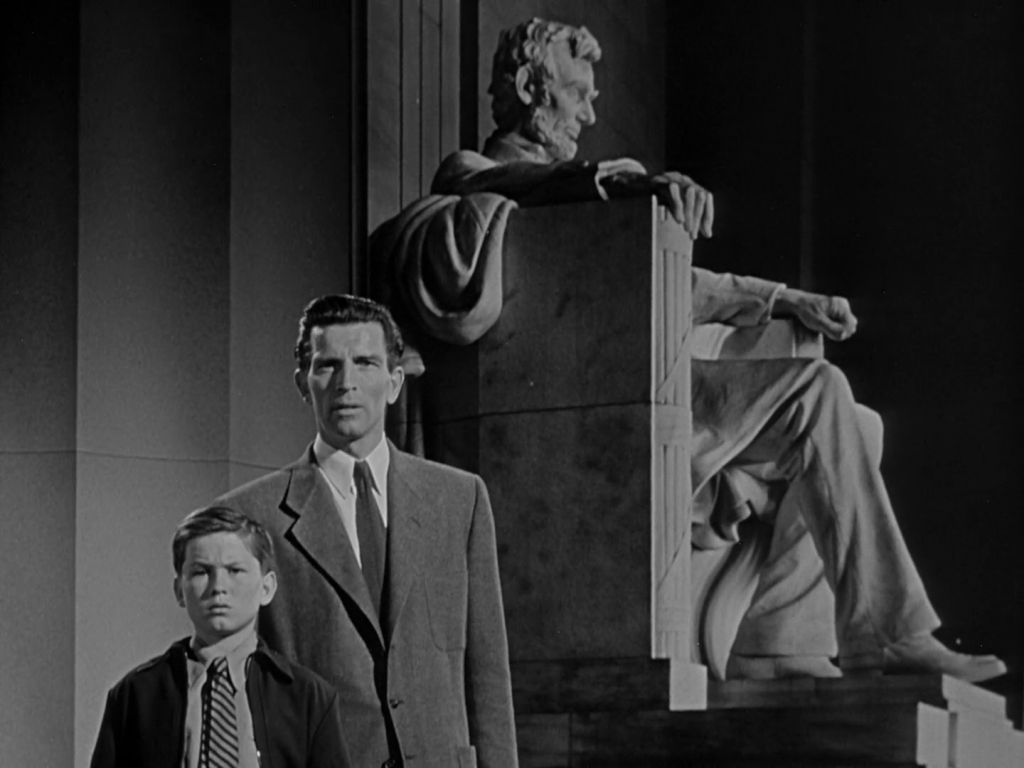
One thought on “Day the Earth Stood Still, The (1951)”
A once-must, for its place in cinema history.
~but I can’t say I’m wildly enthusiastic about this one, except as a reference point for similar films that would follow. Until now, I hadn’t seen the film for a long time. I don’t think time has been all that kind to it.
Rennie’s Klaatu comes to Earth with an urgent message for our world’s leaders. At the end of the film, in an admittedly stirring speech, he reveals that message. However, there really is no reason he couldn’t just give that message when his spaceship first lands – except, then, there would be no movie.
The screenplay tries to compensate for this, but there is very little tension throughout, since the entire film hangs on Rennie’s message. (Herrmann’s score is indeed effective but, except for the film’s start and finish, there is little music, pointing up the fact that there is little drama.)
The acting is ok and performances are earnest (in the case of Marlowe, a little too earnest – he’s as bland as ever).
No doubt, the film had a larger impact on release – and I’m sure, to this day, sci-fi fans will give it more credit than I’m allowing here. But, all told, except for its ultimate conclusion, I find the film a little ho-hum. (And, following the assessment’s sentiment, I’ve no desire to see the remake either.)